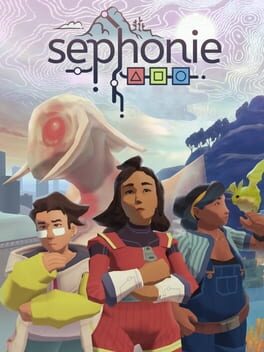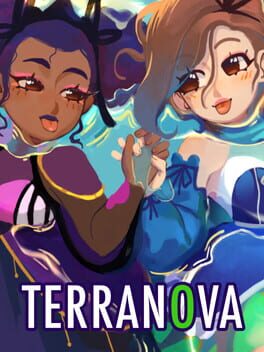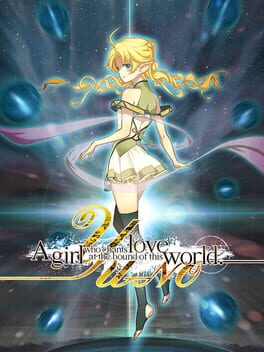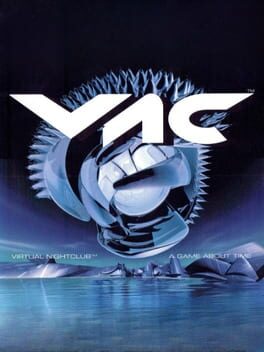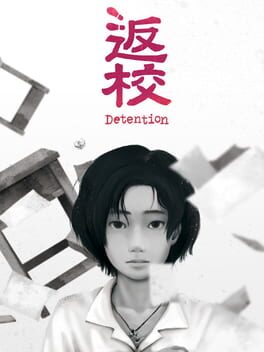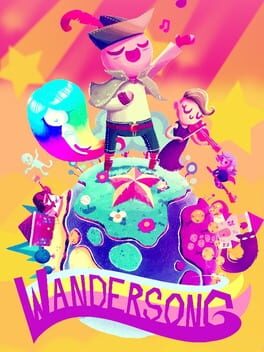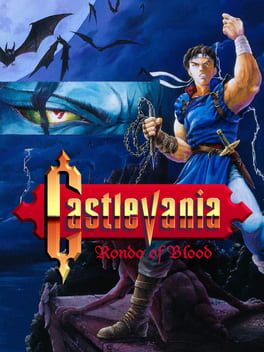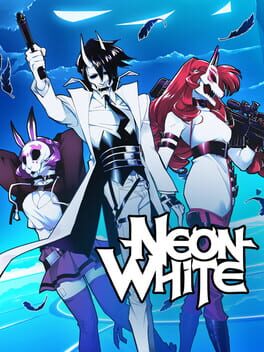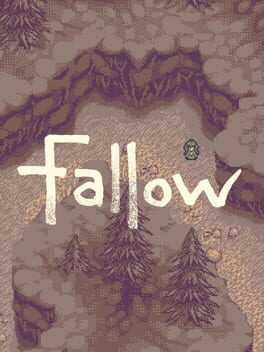BOOitsnathalie
49 Reviews liked by BOOitsnathalie
Sephonie
2022
A puzzle and platforming game (not a puzzle-platformer) surrounding an unconventional sci-fi workplace drama. Three scientists confront the red tape of international research, the constraints of careerism, the material content of their lives, their relationship with each other, and also an emerging alien existential and viral threat to the planet. I had a lot of apprehension at the size of this game and the breadth of subject matter is pulling in, but this is maybe my favorite container for the Analgesic team's prose. Some of the jumps fucking blow and the camera is a constant antagonist as it always is in our current era of 3D platformers, but the accessibility options offer a wide gradient of curating difficulty such that anyone should have a good time.
Moving between methodical platforming to color match puzzle games is, at once, disorienting and perfectly connected. The emotional overture of this game is largely about the capability for adaptation all life has and the eventual ease of snapping between disparate Video Game Challenges drives this home so so well. The whole "middle class people with a lot of resources realize they can imagine and design actionable steps for a better world" will always be a weak narrative goal for me, but the kind of dilemmas of the workplace and nationalism that haunt these characters is delivered in the described gameplay loop that has linked the often overly-dreamlike prose to reality.
Moving between methodical platforming to color match puzzle games is, at once, disorienting and perfectly connected. The emotional overture of this game is largely about the capability for adaptation all life has and the eventual ease of snapping between disparate Video Game Challenges drives this home so so well. The whole "middle class people with a lot of resources realize they can imagine and design actionable steps for a better world" will always be a weak narrative goal for me, but the kind of dilemmas of the workplace and nationalism that haunt these characters is delivered in the described gameplay loop that has linked the often overly-dreamlike prose to reality.
CWs for Zero Escape: Nine Hours, Nine Persons, Nine Doors: blood, graphic injury, sexual harassment, kidnapping, sedation, child death.
Uchikoshi's directorial debut is maybe his best version of his one trick. A touchdown of a DS exclusive, 999 plays on reader assumptions based in game logic, hardware, and UI to neatly wrap them into earnestly pulpy character beats. The feelings of piecing together a mystery for someone doing 0 detective guesswork have never been mechanized better. There are no end goals or bigger statements, but the metanarrative moves are evocative enough that the whole game is supported.
I've been tricked into podcasting about this franchise! Listen to our episode closing out 999.
Uchikoshi's directorial debut is maybe his best version of his one trick. A touchdown of a DS exclusive, 999 plays on reader assumptions based in game logic, hardware, and UI to neatly wrap them into earnestly pulpy character beats. The feelings of piecing together a mystery for someone doing 0 detective guesswork have never been mechanized better. There are no end goals or bigger statements, but the metanarrative moves are evocative enough that the whole game is supported.
I've been tricked into podcasting about this franchise! Listen to our episode closing out 999.
Terranova
2020
CWs for Terranova: eating disorders, gaslighting, homophobia, child abuse
A narrative game deeply committed to simulation of chat clients and RP communities in the mid-aughts, Terranova is often landing the bit at the expense of delivering cohesive character arcs. Reading chats and drafting my blog posts are really sublime at the writing and especially the interface level, but there's a common route you're forced onto that really runs in the face of most expression choices available. The top half of this game (which is all I speak to because I ended with the game in an unplayable state) feels like actual personal memories of the he/him lesbian RPers I knew in high school ripped from my brain before forcing an abrupt turn to make everyone hate each other like it's a CLAMP doujin. This is a really interesting project and I'd love to see this engine refined for something else, but this game is missing tact in design and writing that YA fiction direly needs.
A narrative game deeply committed to simulation of chat clients and RP communities in the mid-aughts, Terranova is often landing the bit at the expense of delivering cohesive character arcs. Reading chats and drafting my blog posts are really sublime at the writing and especially the interface level, but there's a common route you're forced onto that really runs in the face of most expression choices available. The top half of this game (which is all I speak to because I ended with the game in an unplayable state) feels like actual personal memories of the he/him lesbian RPers I knew in high school ripped from my brain before forcing an abrupt turn to make everyone hate each other like it's a CLAMP doujin. This is a really interesting project and I'd love to see this engine refined for something else, but this game is missing tact in design and writing that YA fiction direly needs.
Terranova
2020
Overall this game was pretty good! The use of roleplaying to show the characters projecting their emotions is very interesting and it works well, though I'd say I'd have liked for it to be a bit more on the nose on Effie and Sendaria's threads since they're usually the lengthiest.
Speaking of the latter though, my biggest issues with the game are related to her and how the game wants you to view and treat her to get the best ending. It's a matter of opinion at the end of the day but it really didn't sit well with me and soured the ending of the game for me a bit.
Speaking of the latter though, my biggest issues with the game are related to her and how the game wants you to view and treat her to get the best ending. It's a matter of opinion at the end of the day but it really didn't sit well with me and soured the ending of the game for me a bit.
CWs for YU-NO: A Girl Who Chants Love at the Bounds of this World: incest, sui*, sexual assault falling from great heights, starvation, student-teacher abuse, mind control, child abuse,
Both some of the most exciting and most misfortunate adventure gaming I've ever done. The way this game let's you freely control time travel for the sake of solving adventure game puzzles is intensely demanding (thank you MAGES hint system) but produces extremely satisfying adventure game a-ha moments. You are constantly in the dark even when the right item is found, a new path is made, of some silly sci-fi proper noun is given to you. Nothing in other flowchart routed games compares to the freeform zipping around you get here.
Even with the eroge cut out in the MAGES remake, the cool ass time travel stuff if constantly getting overshadowed by the magnitude of pointless sexual fantasy and taboo shit driving nearly all of the character relations. By the end, only one route leads to a non-incest and non-age gap love interest. It sucks, it's boring and doesn't produce a cohesive thought about taboo or incest. What's worse is that the game strips away the time travel and really any adventure game elements in the last 6-8h when it pivots to strict fantasy to decay anything likeable about the perspective character and to introduce the silliest incest plot of all time. I love the opening of this game and it's fun to trace the rest of adventure games and visual novels through here, but the problems here frequent and unavoidable.
Both some of the most exciting and most misfortunate adventure gaming I've ever done. The way this game let's you freely control time travel for the sake of solving adventure game puzzles is intensely demanding (thank you MAGES hint system) but produces extremely satisfying adventure game a-ha moments. You are constantly in the dark even when the right item is found, a new path is made, of some silly sci-fi proper noun is given to you. Nothing in other flowchart routed games compares to the freeform zipping around you get here.
Even with the eroge cut out in the MAGES remake, the cool ass time travel stuff if constantly getting overshadowed by the magnitude of pointless sexual fantasy and taboo shit driving nearly all of the character relations. By the end, only one route leads to a non-incest and non-age gap love interest. It sucks, it's boring and doesn't produce a cohesive thought about taboo or incest. What's worse is that the game strips away the time travel and really any adventure game elements in the last 6-8h when it pivots to strict fantasy to decay anything likeable about the perspective character and to introduce the silliest incest plot of all time. I love the opening of this game and it's fun to trace the rest of adventure games and visual novels through here, but the problems here frequent and unavoidable.
Citizen Sleeper
2022
CWs for Citizen Sleeper: body horror, gun violence, graphic descriptions of wounds
Citizen Sleeper is a tender stab at post-humanist sci-fi that has a difficult time figuring out what I thinks of the individual in the tides of society. The economy of social sim and CRPG resources produces exciting and stressful conditions of a day laborer on the lamb, but the writing and narrative expression choices think extremely contradictory individualist things. I adore the approach to prose, the illustration, and the biggest swings on most of the quest, but it's just real fucking weird when everything leads to strange video game final boss scenarios when you're otherwise supposed to be a decaying husk looking for connection and purpose.
The spread of choices with the cast becomes narrow and slight as each quest line comes to a close and in general the game as a system falls apart once you have a bit of money to move around. I think this is a beautiful game that land tone, scale, and affection with an really impressive economy even if it has a confused and sometimes even contradictory thesis.
Citizen Sleeper is a tender stab at post-humanist sci-fi that has a difficult time figuring out what I thinks of the individual in the tides of society. The economy of social sim and CRPG resources produces exciting and stressful conditions of a day laborer on the lamb, but the writing and narrative expression choices think extremely contradictory individualist things. I adore the approach to prose, the illustration, and the biggest swings on most of the quest, but it's just real fucking weird when everything leads to strange video game final boss scenarios when you're otherwise supposed to be a decaying husk looking for connection and purpose.
The spread of choices with the cast becomes narrow and slight as each quest line comes to a close and in general the game as a system falls apart once you have a bit of money to move around. I think this is a beautiful game that land tone, scale, and affection with an really impressive economy even if it has a confused and sometimes even contradictory thesis.
Butterfly Soup 2
2022
CWs for Butterfly Soup 2 as provided by Brianna Lei: homophobia, anti-Black racism, anti-Asian racism, Islamophobia, abusive parents, sex mention/suggestive content, China/Taiwan relations, self-hating thoughts
A behemoth follow-up to an already high bar, Butterfly Soup 2 wrings revisited and entirely new gay 2nd gen Asian experiences through slice of life vignettes for an absolute home-run. There's a lot more space to work with here given an already assembled cast supported by a very impressive sense of editing and selection, letting the game take off sprinting. This sequel is able to deliver more breakneck comedy alongside some real rough stuff from the wellspring of American 2nd gen teenager bullshit to make something beautiful, heartrending, and infinitely expansive. Each episode quickly lands its punches before it pulls away, leaving a power wake leading either to warm and delicate narrative payoff or reflection on real-life dilemmas of ethnicity and culture with no real solutions. Butterfly Soup 2 is an intoxicating and humbling reflection on not knowing a damn thing when you're young other than that you're also not gonna know a damn thing later which all YA should strive for.
A behemoth follow-up to an already high bar, Butterfly Soup 2 wrings revisited and entirely new gay 2nd gen Asian experiences through slice of life vignettes for an absolute home-run. There's a lot more space to work with here given an already assembled cast supported by a very impressive sense of editing and selection, letting the game take off sprinting. This sequel is able to deliver more breakneck comedy alongside some real rough stuff from the wellspring of American 2nd gen teenager bullshit to make something beautiful, heartrending, and infinitely expansive. Each episode quickly lands its punches before it pulls away, leaving a power wake leading either to warm and delicate narrative payoff or reflection on real-life dilemmas of ethnicity and culture with no real solutions. Butterfly Soup 2 is an intoxicating and humbling reflection on not knowing a damn thing when you're young other than that you're also not gonna know a damn thing later which all YA should strive for.
A terrible, amazing game that I hate and can never not think about. What it does good is wonderful, and what it does bad is despicable, and the weight of both is relatively equal. It's fascinating, something that anyone interested in genre needs to play and also something I'd never recommend someone play.
It sucks, and I love it.
It sucks, and I love it.
Detention
2017
CWs for Detention: graphic violence, bodily fluids, torture, death by hanging, suffocation, police violence, grooming, pedophilia.
A horror game that's dreadfully still despite a lush auditory and visual language. Detention is set again the backdrop of 1960s martial law in Taiwan, but without any particular allegiance to the CCP at the same time. The political thought of the game is woefully undeveloped. Extremely troublesome and repulsive parallels between grooming and clandestine organizing emerge through unceremonious flashbacks in the back half. The opening of the game rips and a lot of the Silent Hill on rails stuff is cool, but the grounds for speculation that it's horror predecessors carve out are stamped out by a compulsion to make explicit answers for every possibility.
A horror game that's dreadfully still despite a lush auditory and visual language. Detention is set again the backdrop of 1960s martial law in Taiwan, but without any particular allegiance to the CCP at the same time. The political thought of the game is woefully undeveloped. Extremely troublesome and repulsive parallels between grooming and clandestine organizing emerge through unceremonious flashbacks in the back half. The opening of the game rips and a lot of the Silent Hill on rails stuff is cool, but the grounds for speculation that it's horror predecessors carve out are stamped out by a compulsion to make explicit answers for every possibility.
Wandersong
2018
CWs for Wandersong: familial death, body horror
Wandersong is an earnest adventure-platformer. The game is packed to the brim with RPG homage and stapled to the dinkiest toy keyboard you've ever played with. The meta-narrative move to have the player characters discuss being or not being The Hero isn't really interesting to me when it's being on the nose or working through homage. The same thought, however, is really phenomenal when characters are dancing and bouncing off one another in this kind of comics and theater kind of mode. It's quiet and somber and kind of strange when you realize things do and don't revolve around you.
Wandersong is an earnest adventure-platformer. The game is packed to the brim with RPG homage and stapled to the dinkiest toy keyboard you've ever played with. The meta-narrative move to have the player characters discuss being or not being The Hero isn't really interesting to me when it's being on the nose or working through homage. The same thought, however, is really phenomenal when characters are dancing and bouncing off one another in this kind of comics and theater kind of mode. It's quiet and somber and kind of strange when you realize things do and don't revolve around you.
A dramatic pivot in Castlevania to something more about fast jumps and rooms with many puzzle like approaches rather than turtling and attrition. Much kinder than classic-vania but more demanding in terms of control than modern-vanias. The solution and rhythm of rooms are designed to express a grand scale that crumbles before you after some perseverance and careful footwork. The game then just fucking implodes when you unlock Maria and get a double jump in a turn that's almost as transformative as the infamous castle flip in Rondo's sequel. The Dracula fight is really boring but doesn't undercut how delightful and empowering it is to master the game enough for your first clear.
An intriguing mess of JRPG mechanics and pointed queer representation. I think this game suffers most from its control scheme (I am an unfortunate soul who played it with a keyboard) and its third act. I think it would have deeply benefitted from character drama rather than inner turmoil/monologuing. Masterclass in UI design though.
Neon White
2022
Subsonic steps bound off of idyllic tiles, a steadfast one-two sprint. Clasped tightly in his hand, divine intervention is executed by the thunderclap of .500 magnum, a heavenly send-off alternating between the gentle coaxing of automatic fire and the definitive blade of retribution. Closing in, denizens of hell launch bioluminescent bombardments, lethal brimstone sending you down a path 10,000 feet under. As if born to die, the demons are dispatched as quickly as they rise, beings materialized, analyzed, and pulverized within nanoseconds. Speed and focus become one, repetitions on idealized concepts pointing towards sublimity. Your holy arms holstered, your sanctified sword sheathed, you cast your sight upon diamond excellence, an eternity encapsulated in the blink of an eye. Now, beyond the safety of three-round bursts and lead ripostes, you see her.
Her heliotrope hues leave psychoactive cigarette burns; if true angels drive one to madness, her presence in Heaven is well established. Like sewing needles piercing taut eardrums, her voice spikes out, an aural trepanation. More lethal than chambered rounds and heavy ordinance, she implants in your brain the same innate fear that courses through you as you enter convention halls, the same fight-or-flight micropanic as the first step within a college’s Japanese Culture Club, for she is the eidolon of modern otakudom. When you breach the seal on Neon White’s world, what resides underneath isn’t the long-forgotten Y2K Japanimation mecca, but a puréed distillation of the wretched refuse of anime fandom, the Anitwitter and r/animemes congregation speaking in post-post-ironic references, where every man is either a razor-edged twink or a hulking himbo, and every woman either an e-girl yandere or a wannabe mommy-dom that covets humanized mediocrity. Buried under the pretense of being “by freaks, for freaks”, the reality of Neon White puts you in the nightmarish scenario of living through the dreams of the most typical of indie weeb softboys.
Such is the loop of Neon White: for every moment of precise platforming bliss, an hour of Young Thotticus making your amygdala fire on all cylinders, a century of watching history’s straightest couple verbally hate-fuck, an eon of remembering Tumblr-Sexy-Man-ified Junkrat saying “you were my Sasuke!”, an eternity of knowing that the core message of the game is that you have a moral imperative to forgive those who abused you in life, lest you literally go to Hell. Both sides of the equation, fraught and unstable, struggle to maintain a semblance of balance.
When Ben Esposito, Enemy of the People, claimed this project as a game “for freaks”, it masks the reality of what Neon White stands for. Decked in the style of the forums of yesteryear, Online Signature UI and Neocities buttons intact, with a heart beating to the 200bpm pulse of breakcore, the aestheticism of pre-Web 2.0 culture is broken by the asphyxiating smog of The Modern Anime Fan. Sincerity and passion die at the cross of venomous disingenuity, nailed down by ironic detachment and love in the key of “Waifu of the Month”. The work of Angel Matrix, the latest in rebrands of Esposito's predictable shtick, axes even the most optimistic of readings: Neon White is the new face of pretension, wearing the oh-so-relatable mask of an adored time for the sake of drawing attention, not out of love, nostalgia, or passion. Soullessness masquerading as soulful.
and someone please tell the writers that run-on sentences don’t read as like, relatable or quirky. It just looks bad. It’s like, your job to Make Text Read Good. come on.
Her heliotrope hues leave psychoactive cigarette burns; if true angels drive one to madness, her presence in Heaven is well established. Like sewing needles piercing taut eardrums, her voice spikes out, an aural trepanation. More lethal than chambered rounds and heavy ordinance, she implants in your brain the same innate fear that courses through you as you enter convention halls, the same fight-or-flight micropanic as the first step within a college’s Japanese Culture Club, for she is the eidolon of modern otakudom. When you breach the seal on Neon White’s world, what resides underneath isn’t the long-forgotten Y2K Japanimation mecca, but a puréed distillation of the wretched refuse of anime fandom, the Anitwitter and r/animemes congregation speaking in post-post-ironic references, where every man is either a razor-edged twink or a hulking himbo, and every woman either an e-girl yandere or a wannabe mommy-dom that covets humanized mediocrity. Buried under the pretense of being “by freaks, for freaks”, the reality of Neon White puts you in the nightmarish scenario of living through the dreams of the most typical of indie weeb softboys.
Such is the loop of Neon White: for every moment of precise platforming bliss, an hour of Young Thotticus making your amygdala fire on all cylinders, a century of watching history’s straightest couple verbally hate-fuck, an eon of remembering Tumblr-Sexy-Man-ified Junkrat saying “you were my Sasuke!”, an eternity of knowing that the core message of the game is that you have a moral imperative to forgive those who abused you in life, lest you literally go to Hell. Both sides of the equation, fraught and unstable, struggle to maintain a semblance of balance.
When Ben Esposito, Enemy of the People, claimed this project as a game “for freaks”, it masks the reality of what Neon White stands for. Decked in the style of the forums of yesteryear, Online Signature UI and Neocities buttons intact, with a heart beating to the 200bpm pulse of breakcore, the aestheticism of pre-Web 2.0 culture is broken by the asphyxiating smog of The Modern Anime Fan. Sincerity and passion die at the cross of venomous disingenuity, nailed down by ironic detachment and love in the key of “Waifu of the Month”. The work of Angel Matrix, the latest in rebrands of Esposito's predictable shtick, axes even the most optimistic of readings: Neon White is the new face of pretension, wearing the oh-so-relatable mask of an adored time for the sake of drawing attention, not out of love, nostalgia, or passion. Soullessness masquerading as soulful.
Fallow
2021
A game so painfully intimate that it often feels like the screen is bleeding, despite the complete lack of blood. Fallow is a reserved but maximalist RPG Maker adventure game with a very precise sense of time and mourning. Fallow compels you to move and look in claustrophobic ways; it drags your eyes across the digital mud and tries to pull your lids down to cry. Looking and searching for the path forward is such an intense and often discouraging experience, pulling you into a death throes of a world decaying along with our perspective character.
I don't really mesh with the world view here or the relationship to suicidal ideation deeply enmeshed in this game because of where I'm at in life. I also don't like a lot of the prose for the kinds of post-modern and psychoanalytic influence, but those are very narrow points of a much more gestural whole that I really really love for all its unresolved and unabashed misery.
I don't really mesh with the world view here or the relationship to suicidal ideation deeply enmeshed in this game because of where I'm at in life. I also don't like a lot of the prose for the kinds of post-modern and psychoanalytic influence, but those are very narrow points of a much more gestural whole that I really really love for all its unresolved and unabashed misery.
